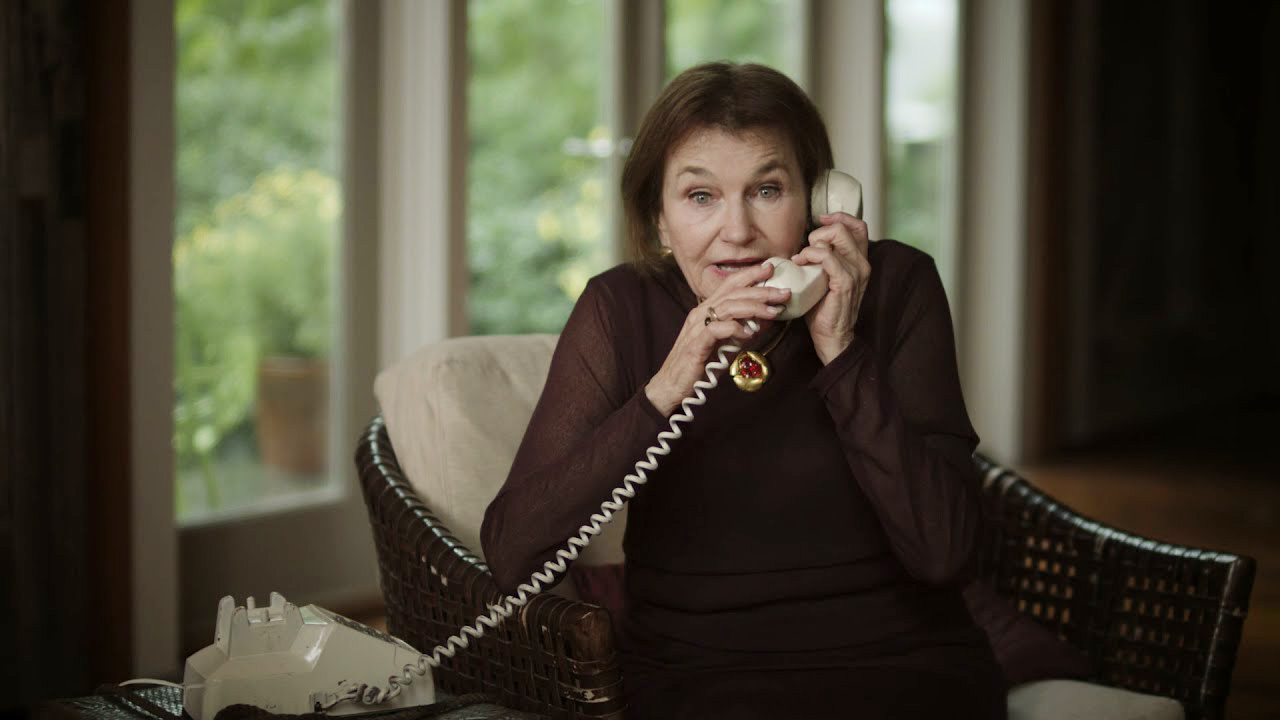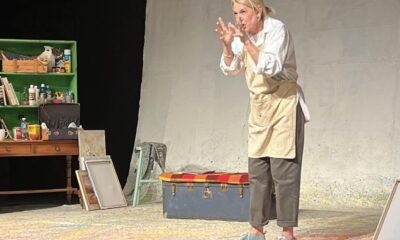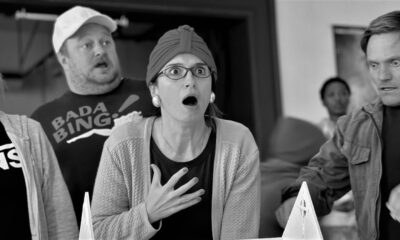
Lifestyle

A new play opens debate on playing Wagner
Many Jewish musicians will not play or listen to the music of Richard Wagner because he has been promoted as Hitler’s favourite composer, but for most this is an unspoken agreement.
Victor Gordon, the late award-winning Pretoria playwright, has pulled the Band Aid off this debate in his play You Will Not Play Wagner. It has been turned into a Zoom film with award-winning actress Annette Miller, who previously played Golda Meir in Golda’s Balcony, as its lead and premiered internationally on 16 November.
“The film opens a discussion on a topic that’s usually not discussed – intergenerational trauma, community, and the assumptions about Wagner,” says Tali Nates, founder and director of the Johannesburg Holocaust & Genocide Centre.
“Should Wagner’s music be played or not? Why is Wagner in the conversation and not others who were much more antisemitic than him? All these critical thinking questions need to be discussed, and I think this play or film allows us to do that.”
The film is dedicated to the memory of Gordon, who was also an artist, musician, community leader, and strong literary advocate for Israel. It was directed by Lilia Levitina.
The play was Gordon’s second international production, and was performed live in both Israel and Australia. He adapted it for Zoom just before he succumbed to COVID-19 in June this year.
Gordon, a retired pharmacist, wrote his first play at the age of 13. He also developed an interest in painting and music, and would go on to sell just under 100 paintings and play jazz semi-professionally for more than 40 years.
He was aware of the informal ban on Wagner’s music in Israel because of the German composer being promoted during the Nazi era as Hitler’s favourite composer. Although this unofficial ban has been unsuccessfully challenged by acclaimed conductors Zubin Mehta and Daniel Barenboim, Gordon wrote a play to explore the dramatic possibilities inherent in the debate around this subject matter.
Set in New York and Tel Aviv during the COVID-19 pandemic, the film focuses on the days leading up to the final of the Esther Greenbaum Conductors Competition. Greenbaum is a Holocaust survivor and the competition’s patron who puts up the prize money for the winner.
She would like the character, Ya’akov, a millennial Israeli upstart, to beat the other five composers, each of a different nationality, in the final. To her surprise, Ya’akov chooses to play music by Wagner in the final.
Ya’akov, who believes the taboo on Wagner’s music in Israel must change, engages in an emotional argument with Greenbaum and the competition’s organiser, whose name is Morris, during a Zoom meeting.
Morris says Ya’akov’s choice will not be tolerated by the general public while Israel remains home to one Holocaust survivor. Ya’akov stands by his selection because he has not transgressed the competition rules and believes the anti-Wagner tradition is “stupid”.
He questions whether a problem would have arisen had he chosen a composer like Mikhail Glinka or Modest Mussorgsky, who never hid their dislike of Jews. He says Wagner had Jewish friends and made great music which presents a unique challenge for any conductor.
Greenbaum argues that Wagner had an influence on Hitler and the philosophy of the Third Reich.
Having ended the meeting in a hysterical state, Greenbaum tries to get her final Zoom meeting with Ya’akov off to a better start, but it soon becomes extremely heated.
When Ya’akov says a live experience with Wagner’s music made him the composer he is today, Greenbaum says that is not her experience. As a mere child, she was forced on pain of death to play Wagner for her concentration camp’s orchestra. “Were I not able to play the violin – were it not for Wagner’s music – I would not now be alive,” she says.
Ya’akov argues we should not forever remain victims of the Nazis and playing Wagner would be the ultimate victory over them.
Nates, a historian who lectures internationally on Holocaust education, says it’s not important whether playing Wagner in Israel would amount to treachery or triumph. “The discussion and the dialogue are the most important,” says Nates, whose father and uncle were among the many Jews saved by businessman Oskar Schindler during the Holocaust.
“The film is so powerful because it’s not just telling a Holocaust story, a survivor’s story, or an artefact’s story. It’s not telling one story. It tells about memory, intergenerational memory, and coming to terms with history. It connects history and personal history, and memory and the importance of collective memory and collective trauma.”
Nates was impressed with how Gordon changed the configuration of the play into a film, but she says it doesn’t cover all aspects of the Holocaust, “which has a complicated history with many layers”.
She says the complicated relationship between Hitler’s admiration of Wagner and the missing pieces of this part of history means playing Wagner in Israel has become a pop culture taboo.
“One of the key historians of Wagner and the Holocaust wrote a book that basically questioned the assumption that Wagner’s music was played by the orchestra of Auschwitz. It was 100% not played by the orchestra in the camps, but it is pop culture belief that it was.”










